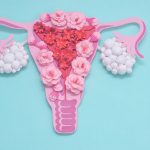New Research Article on Individualized Homeopathic Treatment for Asthma
Node Smith, ND
A recent research study on the use of individualized homeopathic treatment in Asthma was published. The article title is: Efficacy of individualized homeopathy in bronchial asthma in adults: Double-blind, randomized, placebo-controlled, clinical trial in the context of usual care.1 The study showed that combining standard of care treatment with individualized homeopathic treatment of bronchial asthma yielded better outcomes than standard care with placebo.
Asthma is a major public health problem
Asthma is a major public health problem despite advances in its treatment. Management of asthmatic symptoms continues to be the mainstay of conventional treatment. There are many patients who do prefer holistic management of their asthma, including the use of homeopathy.
This current study examines whether usual care plus individualized homoeopathy (UC + IH) can produce significantly different treatment effects compared to usual care plus placebo (UC + P) in adults suffering from bronchial asthma.
Individualized homeopathic treatment
Individualized homeopathic treatment means that each patient may have been given a different homeopathic prescription depending on specific presentation of asthmatic and other symptoms. This is a crucial aspect in the utilization of homeopathy as a treatment method. The control group was given a standard placebo, which looked identical to the homeopathic treatment.
The study followed 140 adults
The study followed 140 adults suffering from bronchial asthma over 3.5 years. The group was randomized to receive either UC + IH or UC + P. Spirometric measures, blood eosinophil percentage and serum immunoglobulin E were primary outcomes and symptom severity and questionnaire scores were secondary outcomes, measured at baseline, and after 3 and 6 months.
Group differences
Group differences over 3 and 6 months showed significant differences in improvement in UC + IH compared to UC + P (P < 0.01) with moderate to large effect sizes (Cohen’s d) for both primary and secondary outcome measures.
UC + IH produced significantly better effect than UC + P in this trial, indicating homeopathy seemed superior to placebo.
 Node Smith, ND, is a naturopathic physician in Portland, OR and associate editor for NDNR. He has been instrumental in maintaining a firm connection to the philosophy and heritage of naturopathic medicine among the next generation of docs. He helped found the first multi-generational experiential retreat, which brings elders, alumni, and students together for a weekend camp-out where naturopathic medicine and medical philosophy are experienced in nature. Four years ago he helped found the non-profit, Association for Naturopathic ReVitalization (ANR), for which he serves as the board chairman. ANR has a mission to inspire health practitioners to embody the naturopathic principles through experiential education. Node also has a firm belief that the next era of naturopathic medicine will see a resurgence of in-patient facilities which use fasting, earthing, hydrotherapy and homeopathy to bring people back from chronic diseases of modern living; he is involved in numerous conversations and projects to bring about this vision.
Node Smith, ND, is a naturopathic physician in Portland, OR and associate editor for NDNR. He has been instrumental in maintaining a firm connection to the philosophy and heritage of naturopathic medicine among the next generation of docs. He helped found the first multi-generational experiential retreat, which brings elders, alumni, and students together for a weekend camp-out where naturopathic medicine and medical philosophy are experienced in nature. Four years ago he helped found the non-profit, Association for Naturopathic ReVitalization (ANR), for which he serves as the board chairman. ANR has a mission to inspire health practitioners to embody the naturopathic principles through experiential education. Node also has a firm belief that the next era of naturopathic medicine will see a resurgence of in-patient facilities which use fasting, earthing, hydrotherapy and homeopathy to bring people back from chronic diseases of modern living; he is involved in numerous conversations and projects to bring about this vision.










